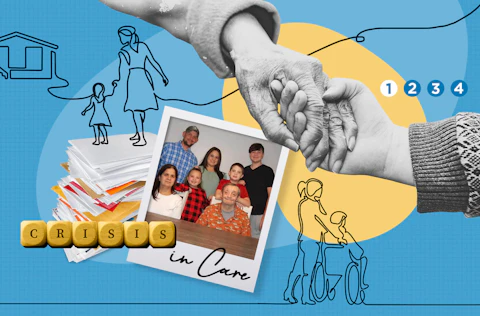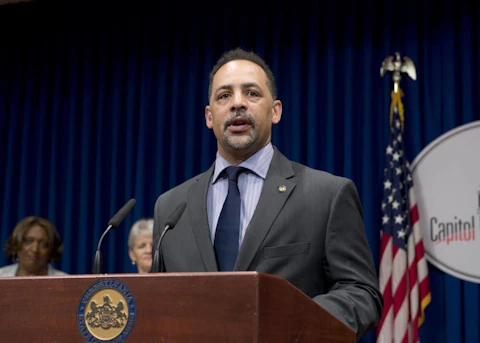“It blows my mind when people don’t want to accept that it’s real. Things I’ve seen I’m never going to forget. It’s going to shape my career and the world … this isn’t going to go away, it’s going to change our lives.”
Colorado Pulmonologist Dr. Gabriel Lockhart was getting ready to donate medical supplies to healthcare workers battling the novel coronavirus in New York City when he realized he was needed in a much bigger way: in person. In late March, Lockhart began a journey that would take him to the edge of human despair, working alongside some of the bravest people he’d ever met at Mount Sinai Hospital. After his first trip there, he decided to return a second time in April, saying “the job isn’t finished.”
In a city where over 16,000 people have died from COVID-19, doctors and nurses have been hailed heroes for voluntarily risking exposure daily. Lockhart is no exception, leaving Colorado not once but twice to serve in the ICU with patients struggling the most from COVID-19 complications, and often needing a ventilator to survive.
Through his emotional and physically exhausting journey, Lockhart said he has changed as a human and a doctor. In the wee hours of the night between shifts, he documented his experiences for his hometown news station 9News Denver, and, later, shared additional insight in an interview with COURIER.
Here’s what Lockhart learned while volunteering in what was once the worst coronavirus hot spot in the country.
COVID-19 will change medicine forever.
As soon as Lockhart arrived on the chaotic and understaffed floor at Mount Sinai, he realized the extent of the work that needed to be done. “It’s real, it’s serious,” he said in an interview. “It blows my mind when people don’t want to accept that it’s real. Things I’ve seen I’m never going to forget. It’s going to shape my career and the world … this isn’t going to go away, it’s going to change our lives.”
Aside from trying to gain a deeper understanding of COVID-19 itself—“Is there a ramping up of the inflammatory response accumulating over time…?” he wondered in his blog—Lockhart said the pandemic broke down barriers within academia and the medical system so that doctors and scientists could quickly share what they learned about the disease. Lives were at stake, and experts were coming together virtually to fight against COVID-19.
Another byproduct of the pandemic, Lockhart said, is how it forced more providers and Americans to embrace telemedicine for primary care. Being able to meet patients online for certain health issues may level the playing field of accessibility for low-income populations going forward, he said, and will help him provide care easily for situations in which being seen in person isn’t necessary. Lockhart projects it will be convenient to “not have to put as much of a burden on the face to face aspect. Some things I don’t need to see the patient face to face, they don’t need to burden themselves.”
 lockhart-2
lockhart-2Nurses are imperative to excellent health care.
One of Lockhart’s first moves when he arrived at Mount Sinai was to implement a new plan to ensure nurses had the opportunity to weigh in on patient care. His colleagues there told him that nurse input had always been considered a priority in the past, but that had fallen to the wayside in the commotion of the pandemic.
While working alongside some of the most dedicated healthcare workers in the country, Lockhart watched their observations change the courses of treatment and increase patient comfort.
RELATED: Wisconsin Nurse Describes the Harsh Realities of Coronavirus in New York City
“Their involvement tweaks our plans for every patient every day, [including]: questioning if we should be restarting nutrition feeds through tubes inserted in patients’ stomachs to aid in healing, clarifying goals of sedation to see if we can start to wake patients up and liberate from the breathing machine, and [providing] invaluable feedback that they may receive from family that help to direct our management,” Lockhart said. Some of the most memorable aspects of his volunteer experiences came from working with nurses. They know the “nitty-gritty” he said, and are the ones usually executing the treatment plans discussed.
Lockhart adds that his respect for nurses goes back to a saying his mom—also a physician—often used: “If momma ain’t happy, nobody’s happy.” He never anticipated just how crucial this advice would prove in a pandemic.
Sometimes the best care is simply holding a patient’s hand as they near the end of their life.
In one blog entry, Lockhart details a traumatizing interaction he had with a couple:
“How do you process what it feels like when a husband and wife are roomed together on the hospital wards, but you have to tell the husband that we need to urgently wheel his wife away to the ICU?” he recounted. “How do you process when you realize she will have to be placed on life support and – in all likelihood – this is the last chance he has to speak to his love? … How do you process the look of desperation on the husband’s face at the exact moment he realizes this may be the last minute he spends with his wife, and he buries his face in his hands?”
Lockhart said he’s “no stranger to death” but at times found the work he was doing overwhelming. “Sometimes the best care is easing the transition to death as well,” he said. That meant simply holding a patient’s hand as they passed just so they wouldn’t be alone—family wasn’t allowed for safety precautions.
Now that he’s back home in Colorado, he wrestles with what it means to do “everything” one can to save a person facing death.
“‘Everything’ can mean thrusting an uncomfortably large plastic tube down someone’s throat, synchronize that person to a breathing machine that doesn’t perfectly replicate his/her natural breathing mechanics and can be extremely uncomfortable, strapping him/her in bed to prevent harming oneself, sedating him/her with powerful drugs to the point they are no longer interactive with the world,” Lockhart said.
RELATED: Trump’s Delay in Issuing Social Distancing Measures Led to Tens of Thousands of Preventable Deaths
Doing “everything” could also mean “later having to surgically place a breathing tube in his/her neck to continue weaning from the breathing machine in a long-term nursing facility for weeks to months, putting in large catheters into his/her neck or groin for dialysis if the kidneys fail, giving him/her very caustic medications through IV lines to maintain blood pressures elevated to a safe range and keep his/her heart pumping yet can cause fingers/toes/hands/feet to turn black and die, and doing chest compressions for CPR to the point of breaking ribs if his/her heart fails with an extraordinarily small chance to successfully restart the heart at that point,” he continued. “This doesn’t even take into account the several long-term complications of an ICU stay even if a patient survives, including PTSD, cognitive deficits, and profound physical deconditioning often to the point where they never live independently again.”
Caring for COVID-19 patients left Lockhart with a greater understanding of the ethics of end-of-life care—something he’s still working to wrap his head around. “It hurts when they pass away,” he said.
Even in the face of death and fear, healthcare workers persevere.
During his time in New York, Lockhart said whenever he accidentally touched his face, he couldn’t help but wonder if that would be the time he’d contract the coronavirus—he phrased it “#coveredinCovid.” Yet each day, he returned to the hospital ready to fight because of the dedication of his colleagues.
“From an emotional perspective, I was able to see the true limits of the human spirit,” he said. “Working with these amazing people in New York and Denver who are putting their lives in harm’s way … you see healthcare workers who are dying and sick … we are going in day in and day out [anyway] to help as much as we can.”
Lockhart specifically references the medical residents he worked with who have only experienced pandemic life as their reality. “It takes an emotional and physical pounding” he said. “They are facing every day 12-14 hours per day, called in from vacation, working all hands on deck.” Residents had just heard of the death of a third trainee physician when he arrived, and though they were disheartened and afraid, they persevered.
It was “truly inspiring for me,” Lockhart said, “and a lesson for our nation the spirit of resiliency.”




